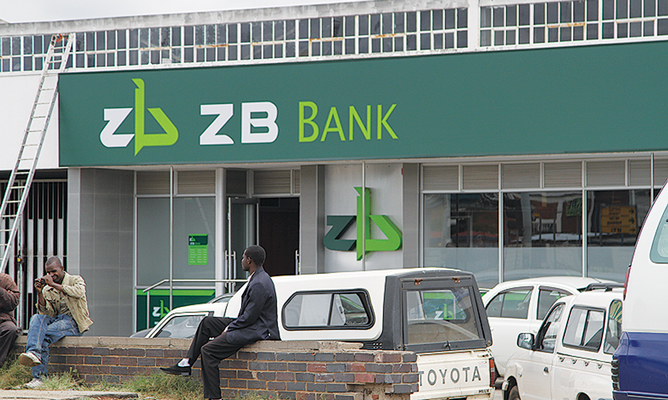
THE Reserve Bank of Zimbabwe (RBZ) believes the cash crisis that left ZB Bank depositors stranded last week will not spread to other banks ahead of the festive season.
BY OUR STAFF
The assurance came amid indications the government-owned institution is battling to normalise the situation.

ZB Bank depositors have been struggling to access their money through automated teller machines (ATMs) since last weekend and the situation was blamed on large withdrawals by civil servants and artisanal miners.
A source told Standardbusiness ZB Bank last week received about a $1 million from another local bank to ameliorate the shortages.
However, the bank reportedly needed $2 million to normalise the situation, but it was not clear how it intended to raise the balance as ZB Holdings chief executive officer Ronald Mutandagayi refused to respond to questions.
“Since we received half of the required amount, we are still in a Catch-22 situation but the availability of cash has improved,” the source said.
- Chamisa under fire over US$120K donation
- Mavhunga puts DeMbare into Chibuku quarterfinals
- Pension funds bet on Cabora Bassa oilfields
- Councils defy govt fire tender directive
Keep Reading
“We have meetings everyday to monitor the situation and we can say the situation is improving every day.
“We are looking for other sources, as well as to address the situation.”
RBZ governor John Mangudya insisted the ZB Bank problems, that he said were temporary, would not have a contagion effect on the country’s financial services sector.
“The issue about ZB Bank was temporary and has since been resolved,” he said.
“The banking sector is well prepared for the demand for cash this festive season.
“The banking sector has sufficient cash resources to meet the demand of consumers.
“The shortages of cash were happening in isolated cases and the solution includes making sure that money is spread evenly in the economy.”
ZB Bank’s cash crisis has also been blamed on the fact that the institution is under United States and European Union sanctions, which limits its ability to import money from America.
Zimbabwe adopted the multicurrency system in 2009 and it is mostly a cash-based economy which means most of its transactions are conducted in cash.
Usage of plastic money is still minimal in the country. Since the adoption of multi-currencies, the country has had liquidity challenges partly due to externalisation of cash and other leakages.
Zimbabweans have experienced a number of cash shortages in the last decade, especially during the festive season, with the most severe one being in 2008, which precipitated the dumping of the local dollar.
In 2013, most depositors also endured several hours queuing for their money at banks during the festive season.











